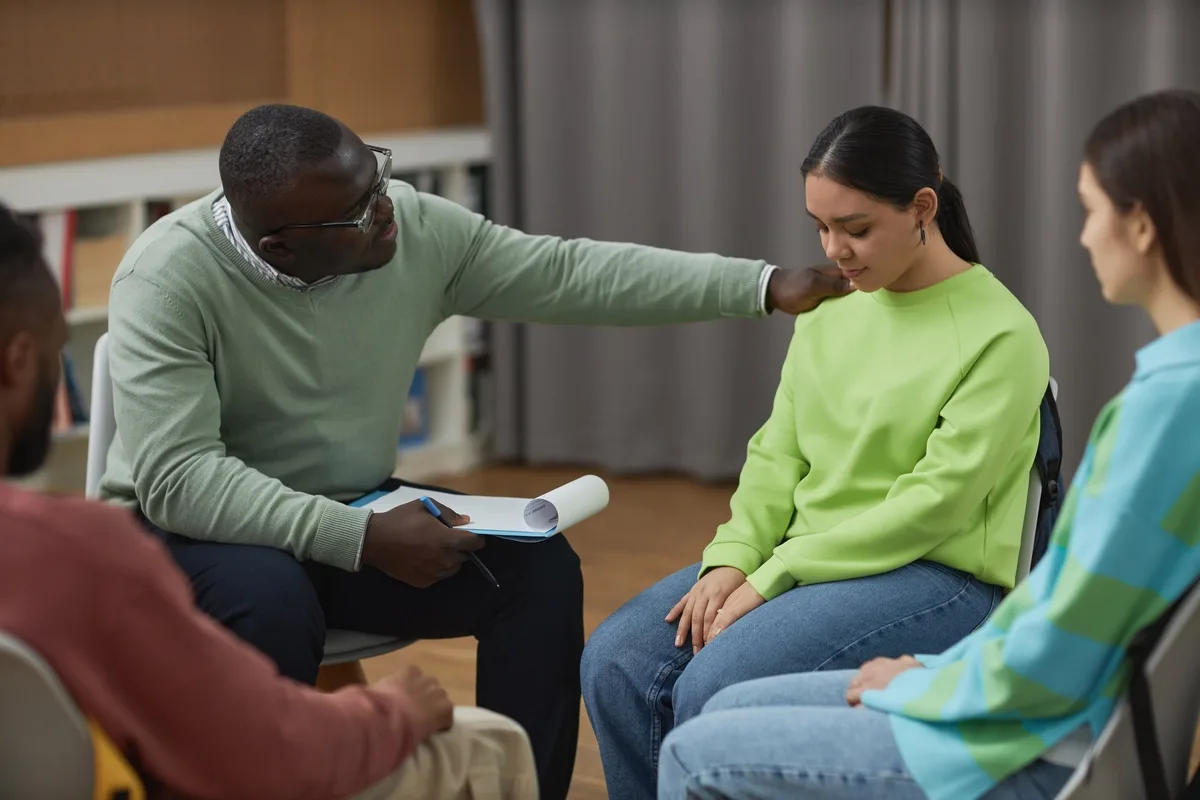24/7 Helpline:
(866) 899-221924/7 Helpline:
(866) 899-2219
Learn more about PTSD Treatment centers in Greentown
PTSD Treatment in Other Cities

Other Insurance Options

Regence

Ceridian

Magellan Health

Absolute Total Care

UMR

Premera

BlueCross

BlueShield

Multiplan

Excellus

Oxford

Anthem

EmblemHealth

State Farm

WellCare Health Plans

CareFirst

Health Choice

Cigna

CareSource

Private insurance


The Gilead House
The Gilead House is a Non-Profit rehab center located in Indianapolis, IN. The Gilead House speciali...

Four County Counseling Center
4C Health Solutions is a dual diagnosis behavioral health treatment center located in Kokomo, IN. Wi...

First City Recovery Center
Freedom is within reach at First City Recovery Center. Based out of Kokomo, Indiana, FCRC offers a f...

Community Howard Behavioral Health Services
Community Howard Behavioral Health Services offers the complete realm of behavioral care to treat th...






























AA – Alcoholics Anonymous
AA – Alcoholics Anonymous is a private rehab located in Kokomo, Indiana. AA – Alcoholics Anonymous s...














